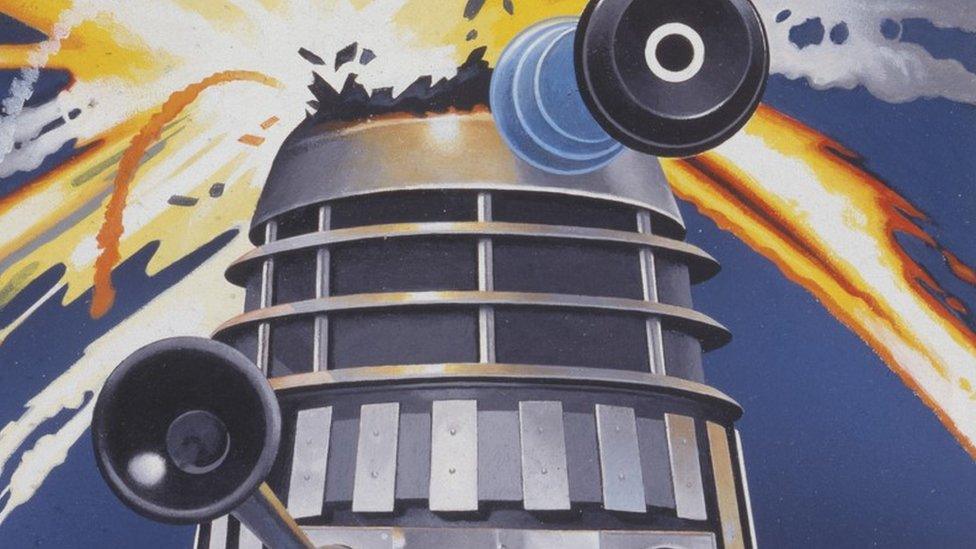Doctor Who: TV crew member recalls genesis of the Daleks
- Published
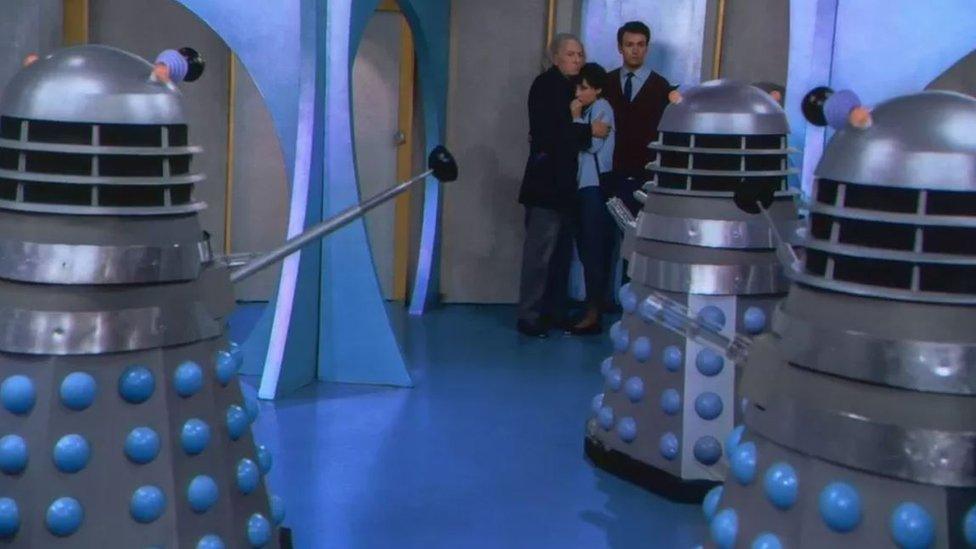
The Dead Planet was colourised and rebroadcast as part of Doctor Who's 60th anniversary
On 21 December 1963, some of the most feared characters in science fiction first appeared on screen.
The first episode of Doctor Who in which the dreaded Daleks appeared - The Dead Planet - was broadcast on BBC television.
While the rest of the country watched from behind their sofas, Sue Webb, from Winchester, was working as a producer's assistant at the BBC's Lime Grove studios in Shepherd's Bush, west London.
Sixty years on, she has been recalling the recording of this landmark moment in TV sci-fi.
Ms Webb admits to being initially unimpressed about working on the BBC's new science fiction drama for Saturday teatimes, based on an eccentric alien, played by William Hartnell, who time travelled in a police phone box.
"It was really just another programme and not what we were used to - we're drama darling - we do play," she says.
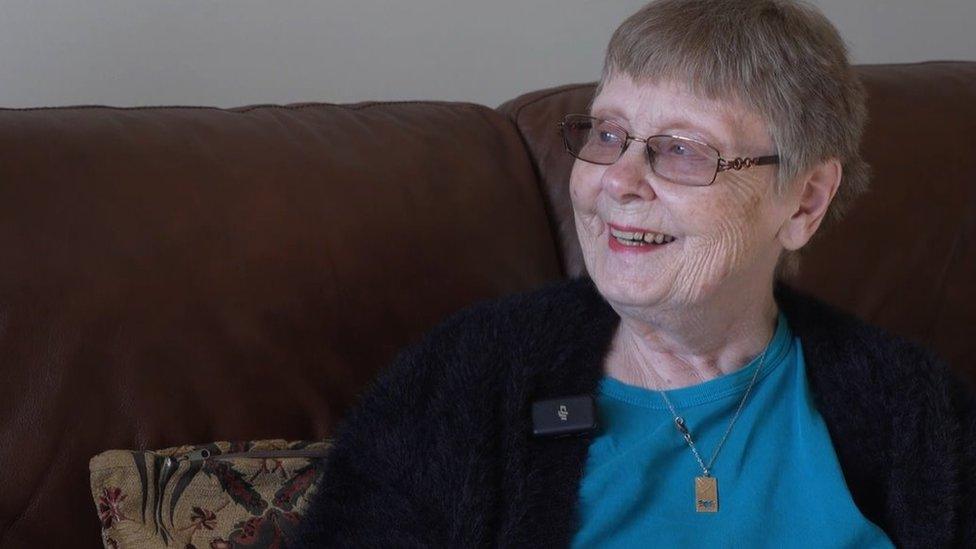
Sue Webb was a BBC producer's assistant on The Dead Planet
She recalls the studio being "actually a bit too small".
"We had to fit in a petrified forest and a metal city for the Daleks," she says, adding: "It looks like cardboard boxes covered in sheets."
As for the metallic pepperpot-shaped aliens, created by designer Raymond Cusick, Ms Webb remembers rehearsals with actors "trolleying" around on castors in just the bottom halves of the characters that would become The Doctor's nemesis.
She says: "Daleks were difficult creatures to move around. They got very hot and the actors were very uncomfortable inside."
Actor David Graham, along with Peter Hawkins, spoke the Daleks' lines in a booth off-screen. Graham later worked on Thunderbirds and Hawkins was the voice of Captain Pugwash.
Those inside the Daleks had to ensure they moved in sync with the dialogue.
The distorted speech was created by the BBC's Radiophonic Workshop and Mrs Webb helped research ways of producing their distinctive voices.
"It couldn't be an earthly voice - it had to be different, but you had to understand it," she says.
"We went to the Post Office, they had a section which dealt with distorts - it was the height of the Cold War so they were used to scrambling up voices."
The Dead Planet episode, written by Doctor Who creator Terry Nation, sees the Tardis "wheezing and puffing" on to the planet Skaro, Ms Webb remembers.
It was a seemingly lifeless world but the survivors of a deadly nuclear war, the Daleks, had mutated into creatures dependent on their travel machines to keep them alive.
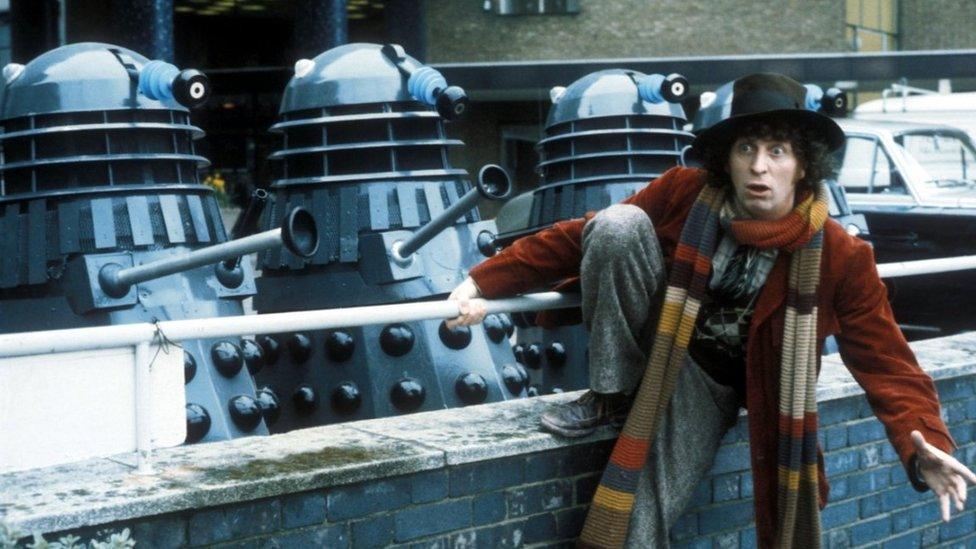
The Daleks went on to become The Doctor's nemesis
With a budget of £5,000 per episode, Ms Webb thinks the special effects lacked the "electronics or wizardry" of later decades.
"Barbara got separated and walked through the metal city and didn't realise she was being followed - the episode ended with her menaced by a sort of hand - which of course was a sink plunger," she says.
"The whole episode creaks - it just doesn't look real at all - the actual surroundings would look terribly amateur.
"The real nightmare was the set with all those sliding doors - they were supposed to rise and sometimes they didn't.
"You have got to rise above it and accept some things are dodgy, keep fingers crossed and hope for the best."
With each episode recorded as live on 20mm videotape, editing was expensive, so having to stop recording was regarded as "a sin".
Petrified Forest
"Our quartet came out of the Tardis and had an M&S label showing - so we had to stop the recording," Ms Webb recalls.
"The Petrified Forest was so fragile, when Doctor Who's assistant picked a flower, it was a bit too petrified and all fell to bits - and we were fast running out of them," Ms Webb recollects.
"It's wonderful that 60 years on Doctor Who is still going strong and is much revered."
However, she says the beginning was a little bittersweet for her as she recalls that during the cast and crew's break, they discovered the staff canteen was unusually quiet, only to discover news had come through that US President John F Kennedy had been shot, external in Dallas.
"I had no idea how significant that day would be - the bizarre connections with Kennedy being shot and introducing Daleks to the world beggars belief," she says.

Follow BBC South on Facebook, external, X, external, or Instagram, external. Send your story ideas to south.newsonline@bbc.co.uk, external.
- Published20 November 2023
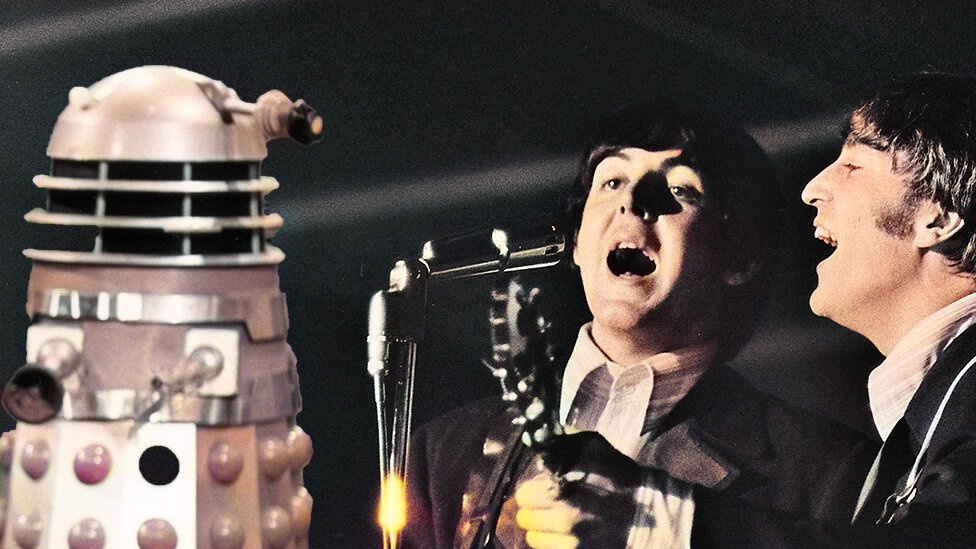
- Published17 November 2023
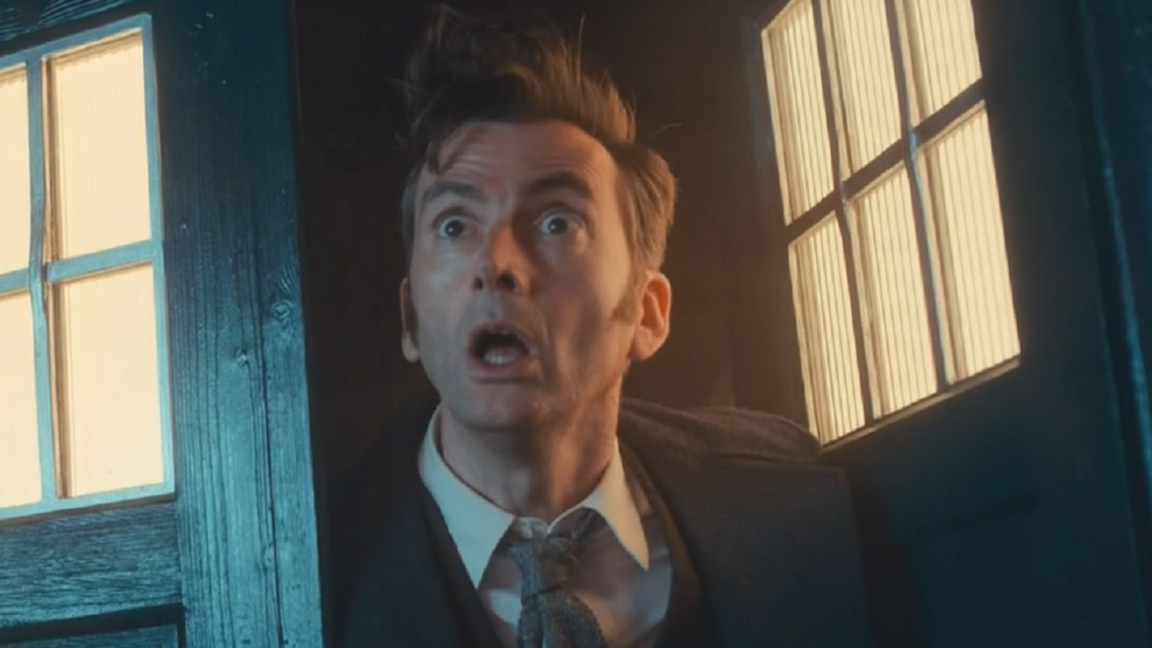
- Published14 October 2023
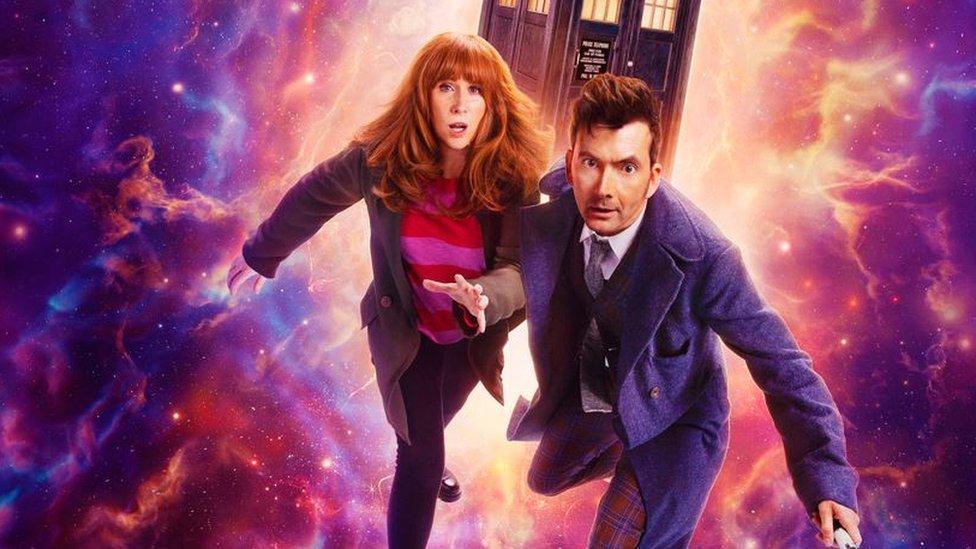
- Published27 August 2023
